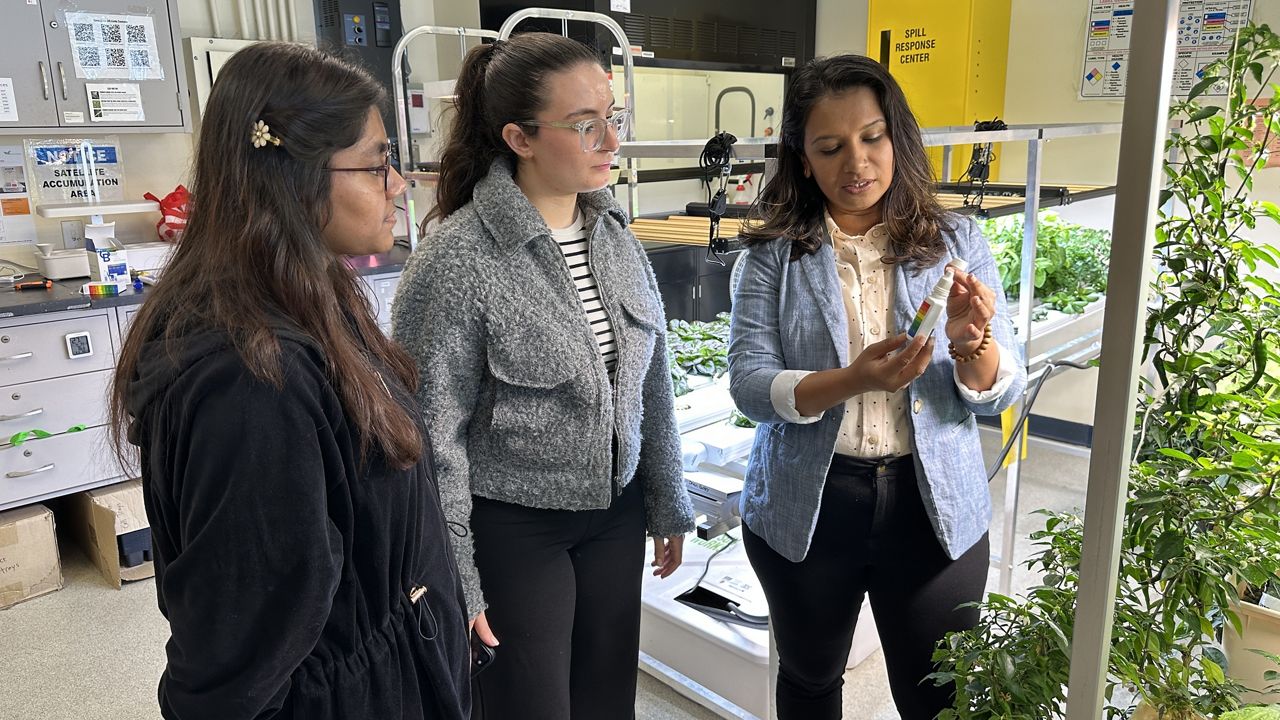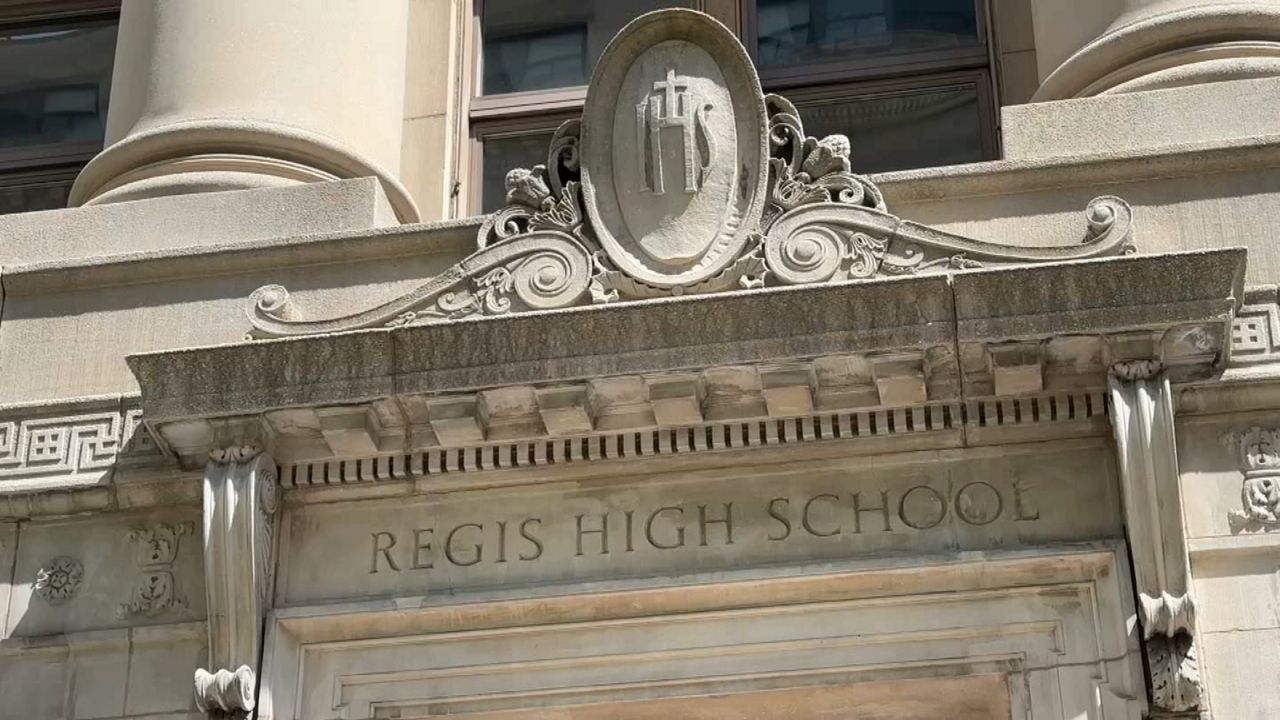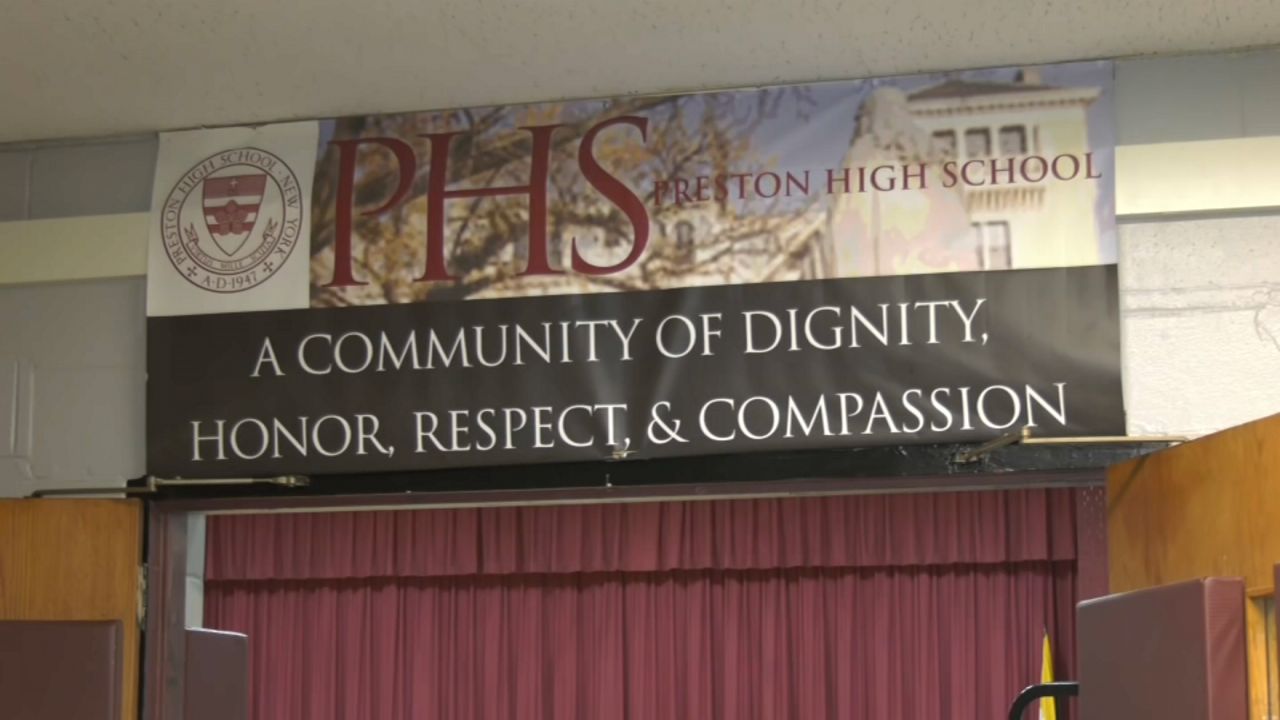Five years after the pandemic shut it down, M.S. 88, a middle school in Park Slope, is filled with students having fun. They’re building mechanical hands out of cardboard. They’re practicing for their upcoming performance of "Beauty and the Beast," and playing in rock and roll bands.
“I think it took a good two years to stabilize,” school principal Ailene Altman-Mitchell said. “But I do think that they were able to bounce back with such a fierceness, you know, to be bold and to be independent and to be confident. But it didn't happen right away. Nothing happens right away. And I look at them, and I just want to cry.”
That’s because Altman-Mitchell knows how far her students — present and former — have come.
Five years ago, these same classrooms were empty. Four years ago, NY1 visited her school to see how it was faring at a time when many students were still at home, and the others sat socially distanced in sparsely populated classrooms. The city frequently called to report positive COVID tests and close down classrooms. Altman-Mitchell recently watched that story again for the first time in years.
“It was not something pleasant to remember, but we did get through it," she said. "But it was hard."
The pandemic changed the city’s public school system, and it changed the students who lived through it — academically and socially. M.S. 88’s current eighth graders were in third grade when schools closed and learning shifted to laptop screens.
“I didn't even recognize half the people in my school, because I was so used to seeing them with the masks,” eighth grader Alice White, 13, said. "The screens, always staying on the screens, I think that really had a big impact on, like, how we now perceive screens and how we're, like, so addicted.”
“A lot of kids also, like, have trouble with, like, getting things in on time and due dates. I know I definitely do,” 14-year-old Neva Orlov, also an eighth grader, said. “I know I got like massive, like, social anxiety after the pandemic, so I think people are a little less, like, social.”
Playing original music in a rock band — dubbed The Mock Regents — has helped with that.
“I would be terrified of going on stage for anything other than playing guitar,” Orlov said.
Francis Lindaman is a student at Midwood High School now, but he started sixth grade at M.S. 88 in 2020.
“I lost a lot of learning in sixth grade, because — that, that was mostly on me. I didn't really pay attention in those online classes,” he said. “But the teachers here, they really took that into account and they pushed us like, back, honestly in the curriculum to, like, rebuild that learning structure so that we could actually understand, like, the seventh grade material.”
He entered high school an accelerated student — he says, thanks to his teachers here at M.S. 88.
“Even if you've given up, people haven't given up on you, especially the teachers,” Lindaman said.
Still, data from the nationally administered standardized tests show students continue to struggle. Schools Chancellor Melissa Aviles-Ramos was the principal of a Bronx high school when the pandemic first hit. By the next school year, she was a deputy superintendent. She’s also a parent.
“My daughter really struggled for a couple of years with reading and writing because we hadn’t perfected, right, how to do a lot of this online,” Aviles-Ramos told NY1. “Some schools were better than others. And I also saw a delay in some of the social skills.”
Those are things the city is working to address, she says, through things like its new literacy curriculum, and focusing on mental health. She says it’s important to show students grace, because they experience the pandemic differently than adults did.
“We have to stop saying things like, ‘When I was a kid, I knew how to shake a hand, and I knew how to interact, and I looked people in the eye,’” she said. “And not to say that we lessen those expectations, but rather, don’t make children feel criticized or punished for an experience that really was not their fault.”
An experience that's still reverberating today.







_PKG_Edu_Budget_Rex_Clean_FOR_APPROVAL)
_Dnt_Budget_-_PS_Cell_Phone_Ban_Clean)
_CGPK_CUNY_Student_Protest_Encampents_2025_CG_134055132_345)

